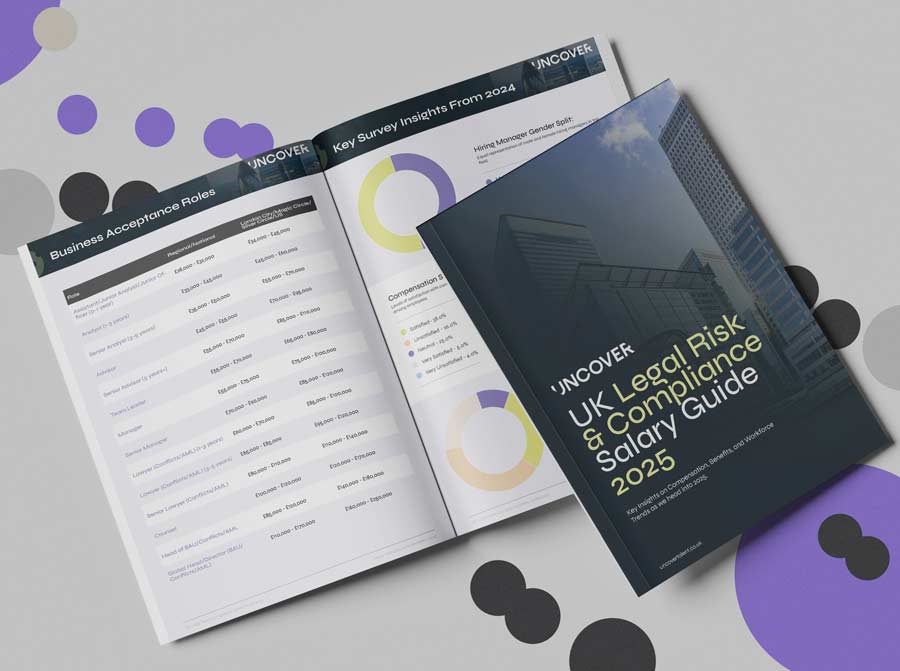When you’re searching for a new role it’s easy to focus on the potential salary that you could take home. However, when considering a career move, the paycheck is only one of a number of factors that make a role suitable for you. In fact, prioritising your new salary over things like professional development and culture fit could actually be detrimental to your career. Read on to find out what you should be considering when you interview for a new position.
Job Satisfaction & Engagement
Being bored is just as frustrating as being stressed. It’s important to find a healthy middle ground because being mentally engaged at work actually plays into your success. You should be driven by a genuine desire to succeed rather than the salary attached to the role. People who are naturally engaged with their work tend to have higher job satisfaction than unmotivated colleagues, leading them to perform better, receive more promotions and attract pay-rises as a result. Prioritising a salary over your job satisfaction will ultimately damage your career by keeping you in lower-level jobs for longer.
Professional Growth & Development
Particularly at the junior end of the market, you have a lot of options when it comes to choosing a new role. However, if you’re relatively early on in your career, a key thing to focus on is whether your role will allow you to grow and develop your technical skills. It’s all very well moving into a role that’s paying you £5-10k more, but if you’re not getting the experience that goes along with that, the uplift is usually very short lived.
Specialist roles tend to pay more money in the short term, but for junior candidates this can limit your career potential by not giving you experience in a range of disciplines and skills at an early stage. Particularly when you’re first entering the market, it’s best to choose a role that’s as broad as possible. Don’t pigeonhole yourself immediately by going for a role that limits your potential but has a slightly higher salary.
Company Culture & Values
You’ll need to consider culture when you’re in the job market. A lot of firms will offer roles that are fairly similar in terms of structure, but their environments will be incredibly varied. You should prioritise finding a culture that encourages engagement, upskilling and progression. Equally, you’ll do best in a company where you’re aligned with their values. If you feel comfortable, appreciated and respected, you will naturally give your best self at work. That translates into exposure, responsibility and progression.
Contact & Exposure
As firms begin to offer more remote roles, junior candidates in particular are seeing a negative impact on their careers. Because you are not working in close quarters with your senior colleagues, you often miss the opportunity to learn from them and build your profile within the company. That’s often fine if you’re a senior person yourself, but if you’re a junior professional you should carefully consider the impact of a remote working environment on your career. While remote roles tend to pay comparatively well, they can also limit your opportunities by isolating you from the wider company.
Employer Reputation & Employee Retention
When firms have a high turnover rate or they’re struggling to hire people, their salaries will often be a bit above the market average. While salary is an important consideration, you should think about whether you will be joining a stable environment and whether the higher salary will be worth the additional stress of an understaffed or overworked team.
Consequences of Salary Prioritisation
If you frequently move jobs to gain a higher salary, you run the risk of not allowing your skill set to develop properly. For example, if you’ve been an analyst for three years, you should have three years’ worth of experience. However, if you have moved three times during that period that won’t be the case. Each time you move it takes three or four months to embed yourself in the firm and begin to work at the same capacity that you did in the previous firm. Over the course of three years, if you’ve made three moves, you’re actually nine months short of your three years worth of experience. Sometimes moving for a salary will be right, but doing it consistently will do a disservice to your career.
To speak to a specialist recruiter in the Legal Risk & Compliance industry, speak to a member of our team today.
You can get in touch here.




